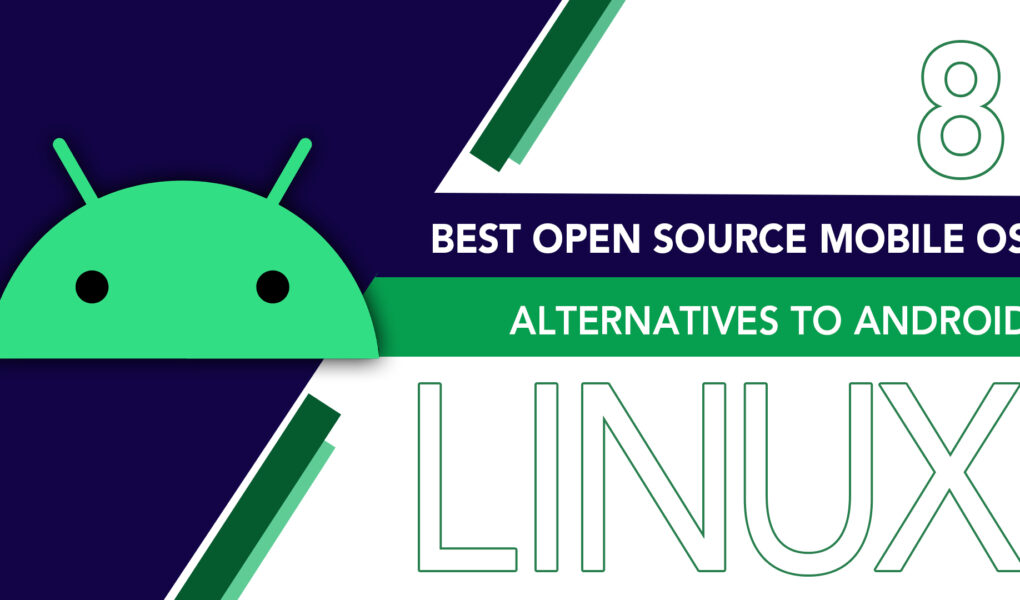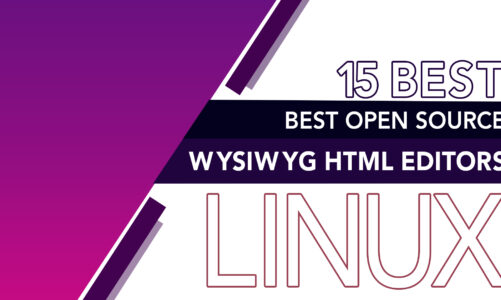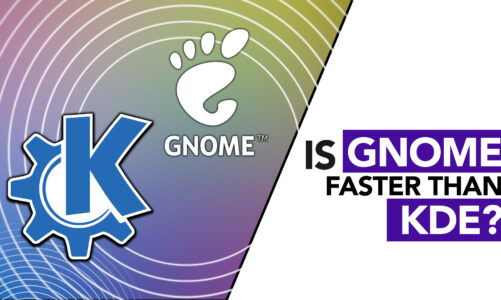Our daily routines are now inseparable from mobile devices, which have become essential. They are used for communication, entertainment, and productivity and have transformed the way we live and work. However, with the increasing dominance of proprietary mobile operating systems like Android and iOS, users have limited options to customize and control their devices. This is where open-source mobile operating systems come in.
These alternatives to Android provide users with greater control, customization options, and privacy. Right here, we will explore some of the best open-source mobile operating systems that can serve as alternatives to Android.
8 Best Open Source Mobile OS Alternatives to Android
Open-source mobile operating systems are developed by communities of developers who contribute to the code and work to improve the software. These operating systems provide users with more control over their devices, allowing for greater customization and personalization. Let’s now examine some of the best alternatives available.
1: Plasma Mobile
Plasma Mobile is an open-source mobile OS developed by the KDE community. With a customizable user interface, users can adjust their experience to suit their individual requirements and inclinations. Additionally, it supports a diverse selection of applications, including well-known open-source alternatives such as Firefox and Telegram. It’s a great alternative to Android, offering transparency, security, and user control.
Pros
- Customizable UI
- Privacy-focused
- Supports open-source apps
Cons
- Limited device compatibility
2: Mobian OS
Mobian OS is an open-source Linux-based mobile operating system that runs on the Pinephone and is compatible with the Librem 5 and PineTab. Built on the Debian platform and utilizing the Phosh user interface, this operating system presents various mobile apps for tasks such as web browsing, file management, gaming, and communication.
It uses the .deb packaging format and supports apps such as Firefox, Calls, Files, Telegram, media player, and text editor. Mobian provides users with more customization, privacy, and security features than traditional mobile operating systems.
Pros
- Focus on user privacy and security
- Uses .deb packaging format for easy software sharing
- More customization and flexibility options
Cons
- Fewer apps compared to Android and iOS
3: postmarketOS
postmarketOS is a free and open-source OS for touchscreen smartphones. It offers long-term support, can be customized with various user interfaces and is pre-installed on PinePhone. It’s a promising Android alternative for those who value open-source and long-term support.
Pros
- Free and open-source
- Long-term support
- Can be customized with various user interfaces
- Pre-installed on PinePhone
Cons
- Limited device compatibility
4: CalyxOS
CalyxOS is a privacy and security-focused mobile operating system that is based on Android without Google services. It has regular system updates and is one of the best options for a Google-free OS. Even Lineage OS uses some of CalyxOS’s apps. For those seeking a mobile operating system with a strong emphasis on security and privacy, CalyxOS is a worthy option to explore.
Pros
- Strong focus on privacy and security
- Regular system updates
- User-friendly
- Compatible with popular devices
Cons
- Limited device support
5: /e/ OS
/e/ OS is an open-source mobile operating system that aims to provide a Google-free experience while prioritizing user privacy. It replaces Google’s services with its own open-source alternatives and promises not to track or sell user data. The project is actively developed, and users can install /e/ OS on a range of devices or purchase refurbished devices that come preinstalled with the OS.
Pros
- Open-source, community-driven project
- Focuses on user privacy and security
- Open-source, community-driven project
- Focuses on user privacy and security
Cons
- Limited device support compared to mainstream OS
6: LineageOS
LineageOS is an open-source operating system designed for smartphones, tablets, and computers and is built upon the Android framework. It is highly customizable, has a strong focus on security and privacy, and is compatible with over 190 mobile devices.
It was started as Cyanogen in 2009 and has since become the most popular custom ROM with over 2.6 million active users. It is an excellent alternative to Android and can be installed on devices from major manufacturers.
Pros
- Highly customizable
- Strong focus on security and privacy
- Wide range of features and options
- Regular updates and new features
Cons
- Requires technical knowledge to install and use
7: Tizen
Supported by Samsung, Intel, and the Linux Foundation, Tizen is a Linux-based mobile operating system that is open-source. Despite the release of the first Tizen phone, the Samsung Z, in 2015, it failed to gain market traction. Notwithstanding its potential, Tizen has faced security issues, and its future is uncertain. However, the project is active and offers a suite for developers.
Pros
- Supported by Linux Foundation, Samsung, and Intel
- Unique user interface
- Designed to work seamlessly with other open-source platforms
Cons
- Limited app ecosystem compared to other mobile OS
8: GrapheneOS
GrapheneOS is a privacy-focused mobile operating system that is built on open-source technology and is designed to prioritize the privacy and security of its users. It is fully compatible with Android apps and offers a range of privacy-focused apps and services.
This OS is essentially a more secure and hardened version of Android that does not include any pre-installed Google services. It is officially supported on several Pixel models, making it a reliable and trustworthy alternative for users who value their privacy and security.
Pros
- Open-source and transparent
- Compatible with Android apps
- Officially supported on several Pixel models
Cons
- May require additional steps for installation and setup
Conclusion
While Android may be the most widely used mobile operating system, it is not the only option available. Open-source mobile operating systems have emerged as viable alternatives to Android, offering greater customization, privacy, and security. From Plasma Mobile and /e/OS to postmarketOS, there are several open-source mobile operating systems to choose from.



